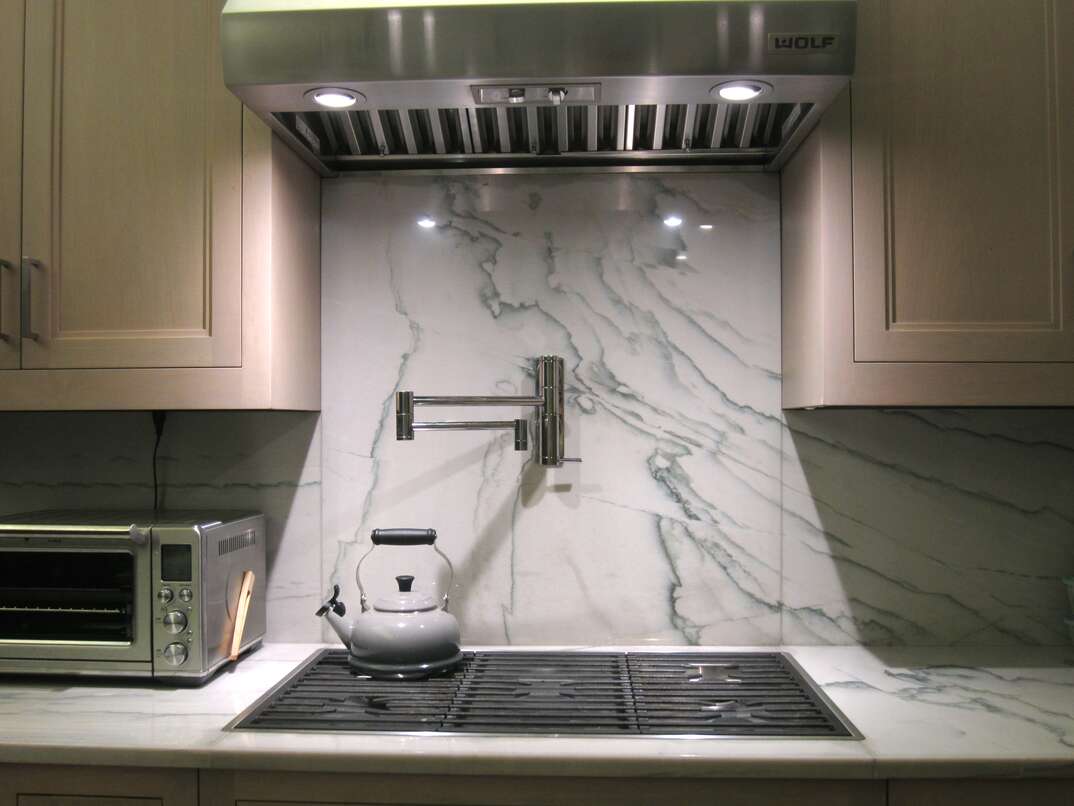- AppliancesElectriciansHVACLandscapingLocksmithPest ControlPlumbingRenovationRoofingT V RepairAll Home Improvement
- Car AccidentClass ActionCorporate LawCriminal DefenseDivorce LawEmployment LawFamily LawFinancial LawLegal AidMedical Injury LawyersMedical MalpracticeReal Estate LawWater Fire RestorationAll Legal
- InvestmentRetirementAll Finance
- Animal InsuranceAutoGeneral InsuranceHealth PolicyHome RentersAll Insurance
- DentalHealth SpecialistsAll Medical
- Animal CareVeterinaryAll Pets
- Auto GlassTowingAll Automotive
Here's How to Clean Your Range Hood

Your culinary adventures create more than messy pots and pans. They can also leave grease and food particles splattered all over your kitchen, including the range hood.
Regular cleaning ensures that your range hood runs efficiently. It can also eliminate a source of grease fires. Here’s how to clean yours.
Your kitchen range hood needs to be cleaned regularly for several reasons. The greasy splatters make the hood look dirty and gross, so wiping down the exterior keeps your kitchen looking better. The longer you wait to wipe it down, the harder those splatters become to remove.
Inside the hood, the grease and gunk can gum up the components and keep them from working properly. Dirty range hoods and filters can struggle to properly vent your kitchen air. This forces the motor to work harder, which can wear out the unit faster than normal.
How Do You Clean a Range Hood?
A microfiber cloth works well for cleaning all types of surfaces in your kitchen, from your stainless steel sink to your range hood. Add a few drops of grease-fighting dish soap to warm water to make a soapy cleaning mixture. Use the cloth and soapy water to wipe down the exterior of the range hood. Go over it again with a clean cloth and plain water to remove the residue. Dry it with a towel to prevent water spots.
Move to the underside of the range hood, which is often where gunk builds up. This part is easier to clean if you remove the air filter so that you can reach all the parts. Use the same cleaning method to remove debris there. You can also use a gentle scrub brush to help scour away particles without damaging the hood. Avoid using wire brushes or other damaging cleaning tools.
Sometimes, regular cleaning solutions aren't enough to get rid of the residue that can build up on range hoods. A mixture of vinegar and water often helps break down the grease. Spray the vinegar mixture onto the greasy areas and scrub them. You can let the vinegar sit for a few minutes to help loosen the grease. A paste of water and baking soda can also create a gentle scouring agent to ease off the grease. Rinse the range hood well after using these cleaners.
What's the Best Way to Clean Range Hood Filters?
Regularly cleaning the filter helps remove grease and food particles that can clog it. Remove the filter from the range hood for easier cleaning. Start by wiping any large chunks you see on the outside of the filter. Then, soak it in a sink full of hot, soapy water for at least 15 minutes. You can also add about 1/4 cup of baking soda to the water to help soften the greasy residue. After it soaks, use your gentle scrub brush to clean out the remaining grease and food particles. Let the filter dry completely before placing it back in the range hood.
How Often Should You Clean a Range Hood?
How often you need to clean the range hood depends largely on how often you cook and the types of food you cook. If you rarely cook or avoid making foods that splatter and have lots of grease, you might not need to clean the range hood very often. If you cook three meals a day with lots of food splatters, you'll need to clean it regularly.
Cleaning monthly or every other month is usually good. Wiping the exterior while you clean other surfaces — such as your backsplash and cabinets — keeps the debris from building up. Don't wait until the filter is clogged to clean it because it's more difficult to remove the debris. It can also cause unnecessary strain on the unit.
Elocal Editorial Content is for educational and entertainment purposes only. Editorial Content should not be used as a substitute for advice from a licensed professional in your state reviewing your issue. Systems, equipment, issues and circumstances vary. Follow the manufacturer's safety precautions. The opinions, beliefs and viewpoints expressed by the eLocal Editorial Team and other third-party content providers do not necessarily reflect the opinions, beliefs and viewpoints of eLocal or its affiliate companies. Use of the Blog is subject to the
Website Terms and Conditions.The eLocal Editorial Team operates independently of eLocal USA's marketing and sales decisions.



